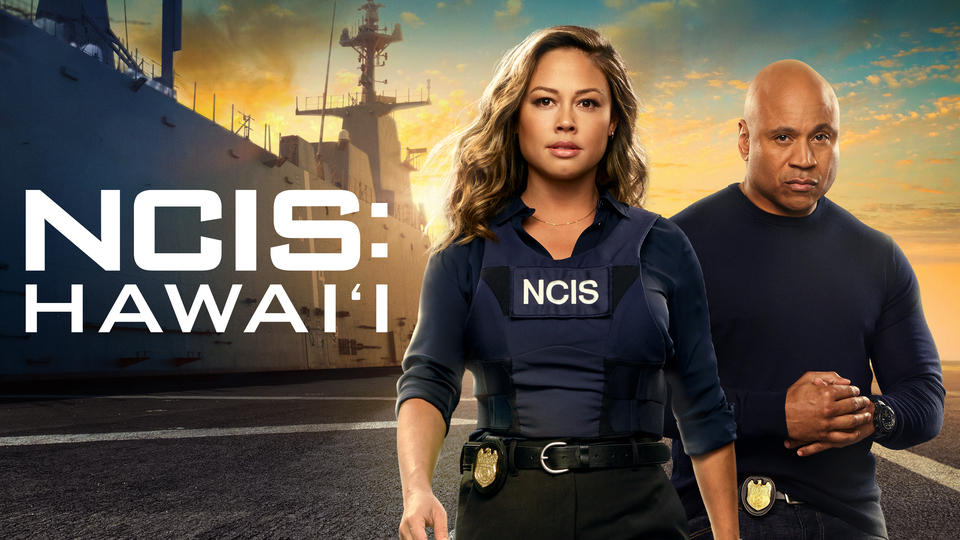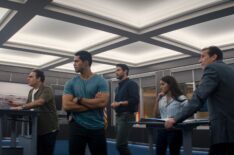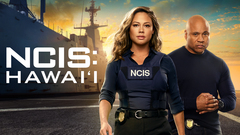‘NCIS: Hawai’i’: Daniela Ruah Talks Directing Major Jane Tennant Twist
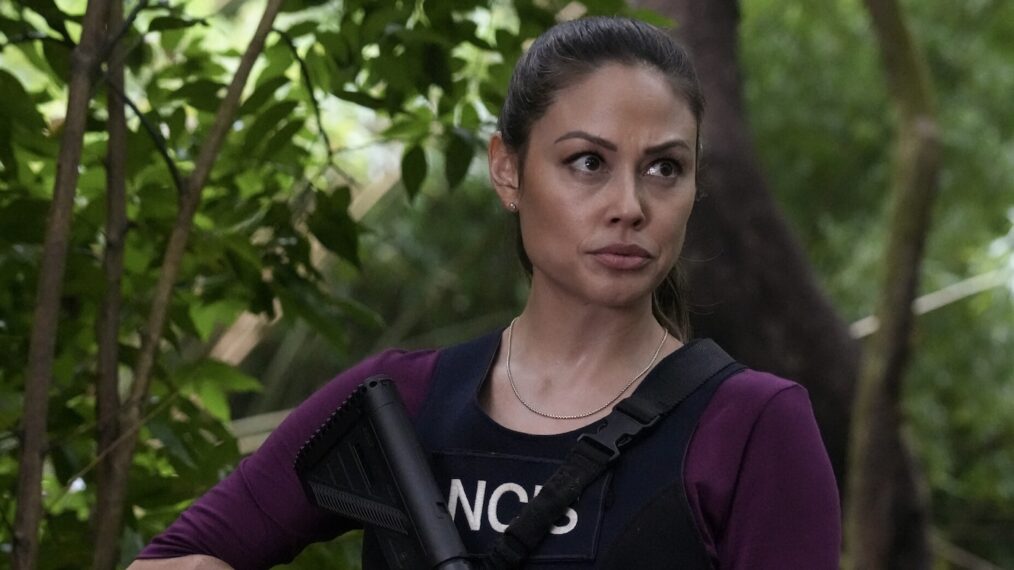
Spoiler Alert
[Warning: The below contains MAJOR spoilers for NCIS: Hawai’i Season 3 Episode 7 “The Next Thousand.”]
NCIS: Hawai’i just started Jane Tennant (Vanessa Lachey) on quite the journey we can’t wait to see play out: one involving her mother.
While tracking down an elite team of Marines, Jane is injured and seemingly takes refuge in a cabin with a woman living out in the jungle. But then that woman starts asking questions about the case—using details she couldn’t know—and Jane asks her why she lives in the woods. So she’d find her, the woman says, then seemingly shoots her. That’s when Jane opens her eyes to find herself alone in the cabin. That’s something that stays with her after, then when she gets home, Jane realizes the woman she saw in her head in the cabin was her mother, looking the same way she did the day she abandoned her. It’s a sign “our story’s not over yet,” she realizes.
NCIS: LA star Daniela Ruah directed the episode and shares that behind the scenes, there was a very careful approach to those scenes—including when it came to how Jane looks in them.
“We even made the choice, for example, that world when she goes into the cabin, that’s her perception of the world, and she hasn’t seen herself in the mirror. So if you’ll notice, she doesn’t even have a cut on her head. But then when we come out and see that she’s alone in the cabin, she does have a cut on her head because that’s the reality and she can’t see herself, so therefore she doesn’t see the blood. Therefore it’s not there in her world that she’s creating in that moment,” Ruah tells TV Insider.
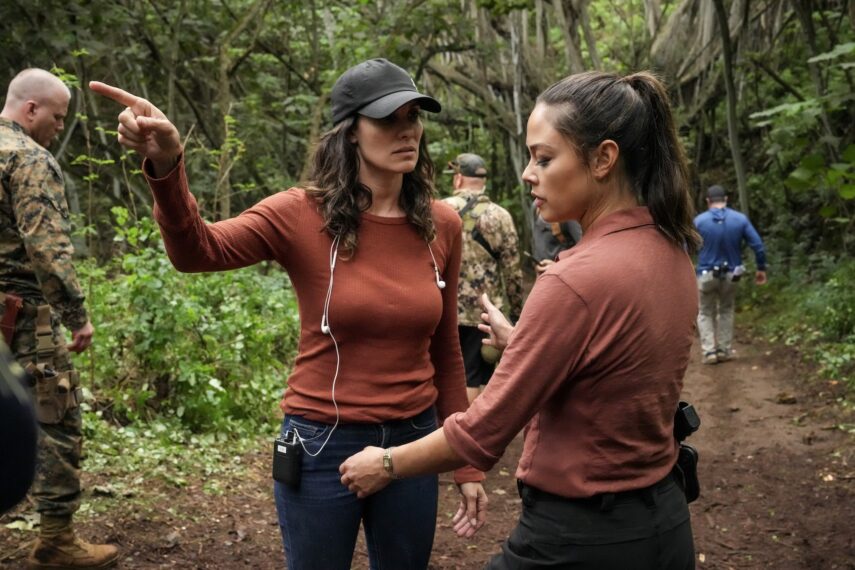
Karen Neal / CBS
“It was a fine line between tipping your hand too soon and making it so weird that the audience would be like, ‘This doesn’t seem right. This is probably a flashback, or this is probably something in our head,'” Ruah continues. “So we had to be careful to shoot it as normally as possible without tipping our hand. But then the way that the scenes were written, there’s this amazing crescendo of weirdness. It just gets weirder and weirder every time we go back to the cabin, and it just allowed for me to do something different, especially when Mom is starting to really question her about the guy in the woods, and she’s like, ‘How do you know about the guy in the woods? How is that even something you know about?’ And I had them speak into camera so that it’s just that she’s really speaking into her soul.”
The director says those were scenes—which she calls “incredible”—that were “heavily discussed” when it came to certain decisions, including how to present this version of Jane’s mother. “It’s really, really important, the sense of, maybe her mother saw her as a bother, and so that’s how she perceived this woman who opens the door and she’s like, ‘I don’t want you here. I want you to leave,'” explains Ruah. “Because maybe that’s the sensation she feels of why maybe her mother left, ‘Was I a bother to my mother?’ Whether those things are true or not for that character, those are the things that we had to discuss. The showrunners are still are exploring this journey for Jane Tennant, so there aren’t a whole lot of concrete answers. So I just had to figure out what made sense for this episode and leave enough open that they can keep building on it.”
That’s not the only part of the episode that isn’t what it first appears to be: The identity of the bad guy is, as well. And that’s part of what excited Ruah as a director. The murder of a Marine from an elite team during a training exercise brings the team into the jungle; as more Marines are murdered, the agents soon realize that the real bad guys are those being killed off, after assaulting and killing a woman. And it wasn’t their first time doing so.
“The case itself really takes you in one direction, and then the episode about three quarters in kind of flips on its head and you’re like, ‘Oh gosh, no. The guy that we think is a bad guy turns out he’s actually a good guy solving things in the wrong way, but he’s a good guy.’ I always love giving the audience who’s watching the episode this feeling of, ‘I see where the motivation is for this character, but is it right or wrong to be killing these bad guys?'” Ruah shares. “It’s a hard moral episode to watch because of that, but at the same time, once you find out what the bad guys did, you’re just like, ‘Oh, crush them.’ So you take the audience on a journey in this episode, for sure.”
What did you think of that glimpse at Jane’s mother? What are you hoping to see as this storyline continues? Let us know in the comments section, below.
NCIS: Hawai’i, Mondays, 10/9c, CBS

